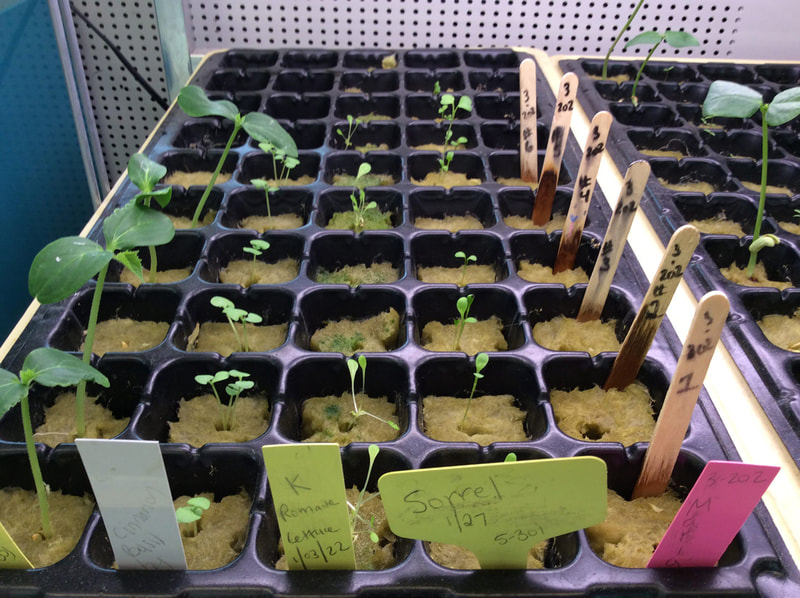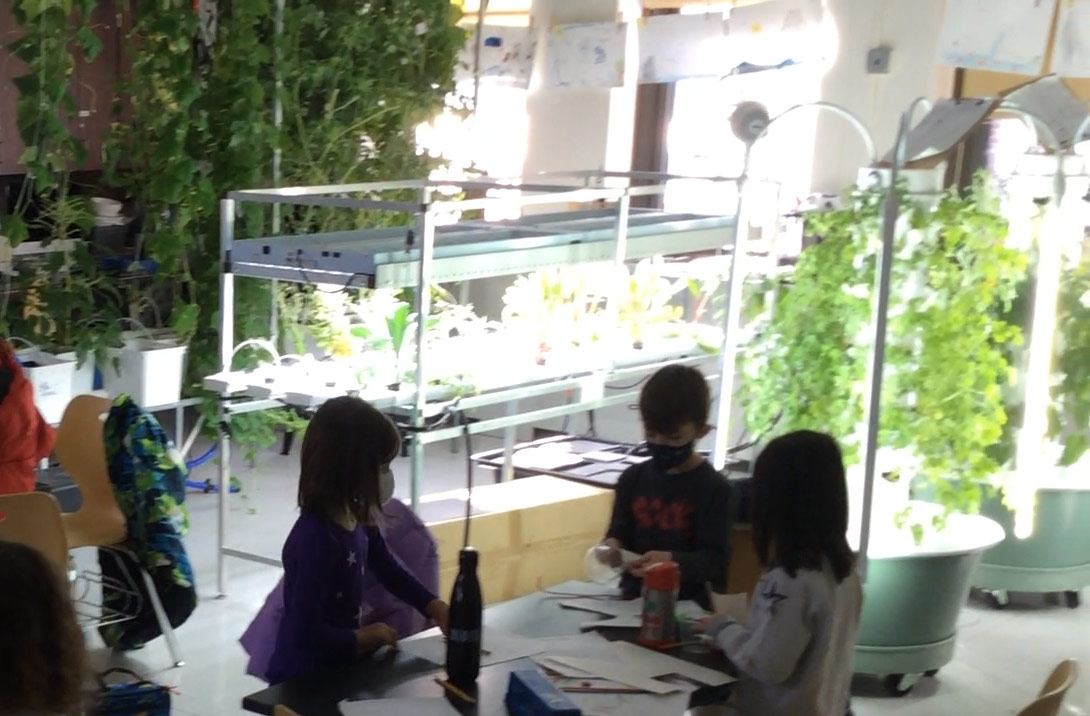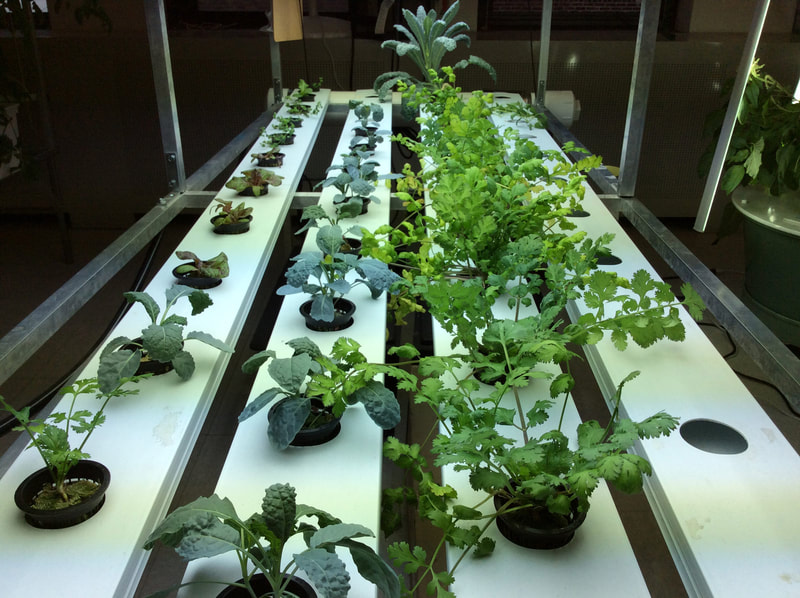Science
The Science room at The Maurice Sendak Community School is a place that grows both critical thinkers and nutritious food. We believe that students learn best when activities are hands-on.
With the help of our state of the art hydroponics lab, each student has the opportunity to learn where their food comes from, observe ecosystems, learn about sustainability and participate in social justice. They get to grow, cook and taste crops from cultures around the world, and give back to their local community by providing food to people in need. Students are always excited to see how their crops are growing and participate in the upkeep and maintenance of their indoor farm.
Our Science curriculum follows the Next Generation Science Standards. The NGSS identifies scientific and engineering practices, crosscutting concepts, and core ideas in science that all K–12 students should master in order to prepare for success in college and 21st-century careers. Students learn to ask questions and define problems, develop and use models, analyze data, engage in argument from evidence. They learn to become systems thinkers and look for patterns and cause and effect relationships. Content draws from Life Science, Earth and Space Science and Physical Science:
With the help of our state of the art hydroponics lab, each student has the opportunity to learn where their food comes from, observe ecosystems, learn about sustainability and participate in social justice. They get to grow, cook and taste crops from cultures around the world, and give back to their local community by providing food to people in need. Students are always excited to see how their crops are growing and participate in the upkeep and maintenance of their indoor farm.
Our Science curriculum follows the Next Generation Science Standards. The NGSS identifies scientific and engineering practices, crosscutting concepts, and core ideas in science that all K–12 students should master in order to prepare for success in college and 21st-century careers. Students learn to ask questions and define problems, develop and use models, analyze data, engage in argument from evidence. They learn to become systems thinkers and look for patterns and cause and effect relationships. Content draws from Life Science, Earth and Space Science and Physical Science:




